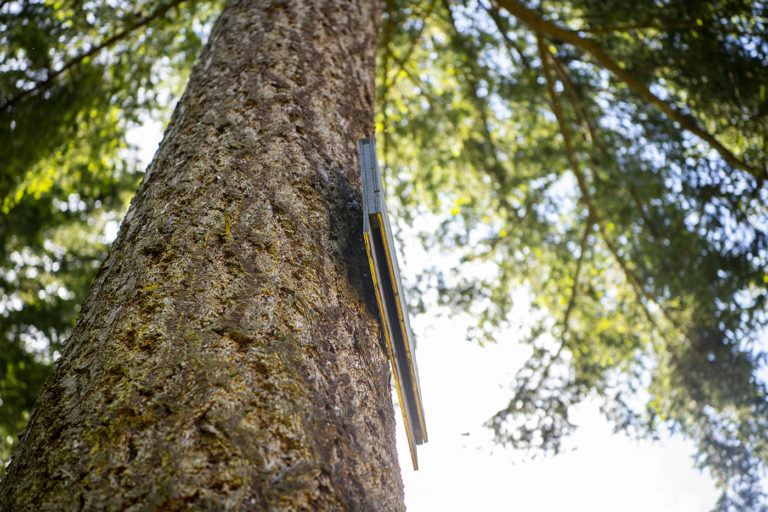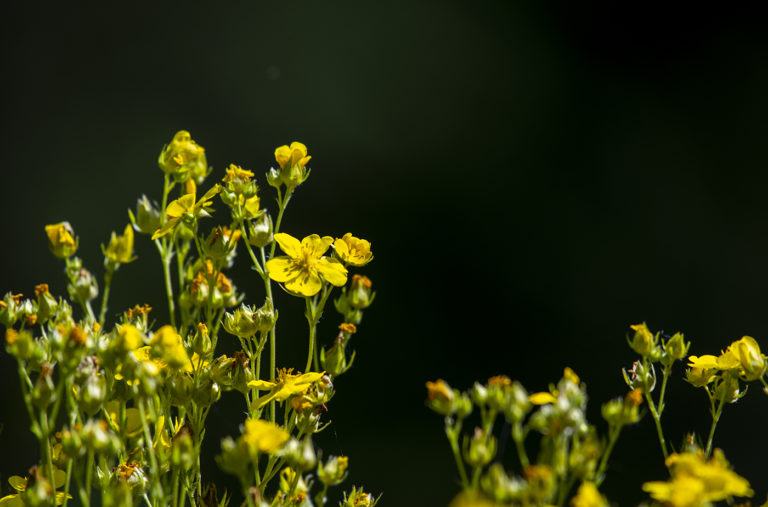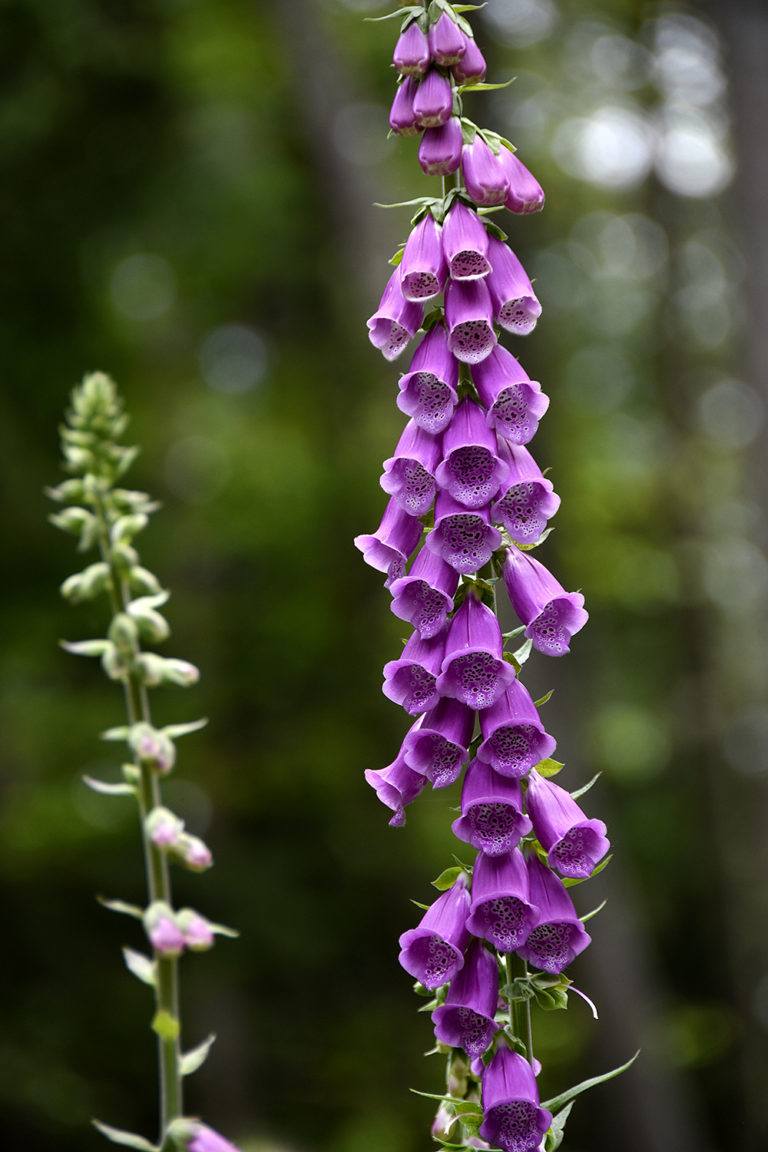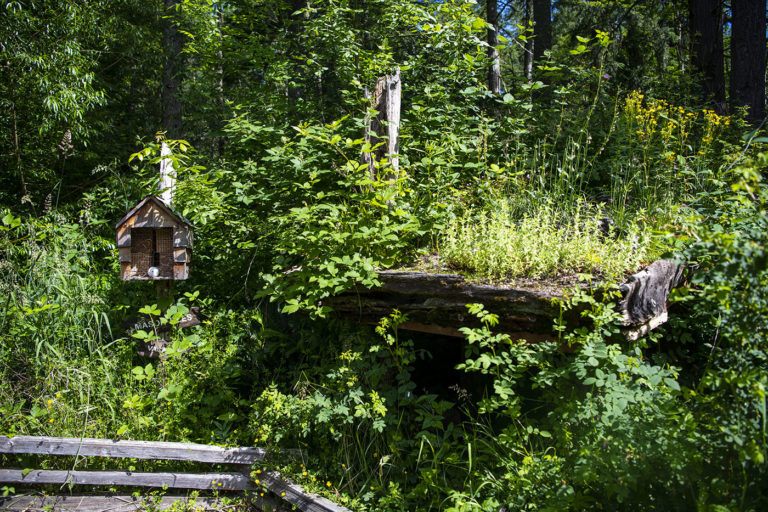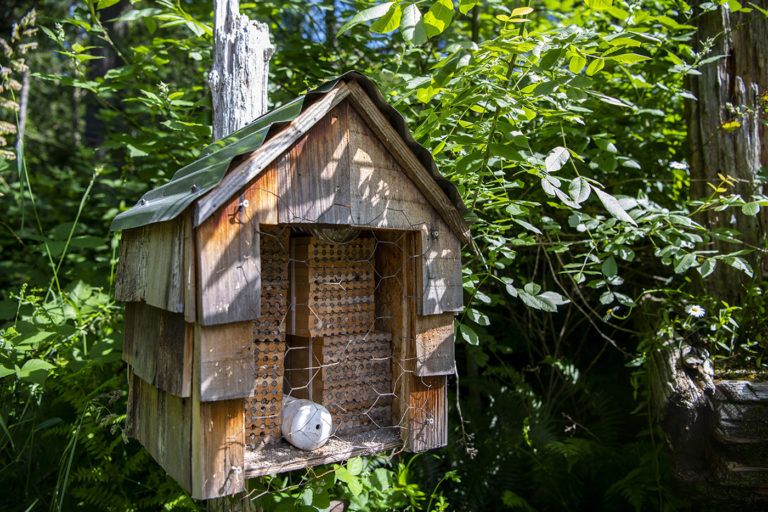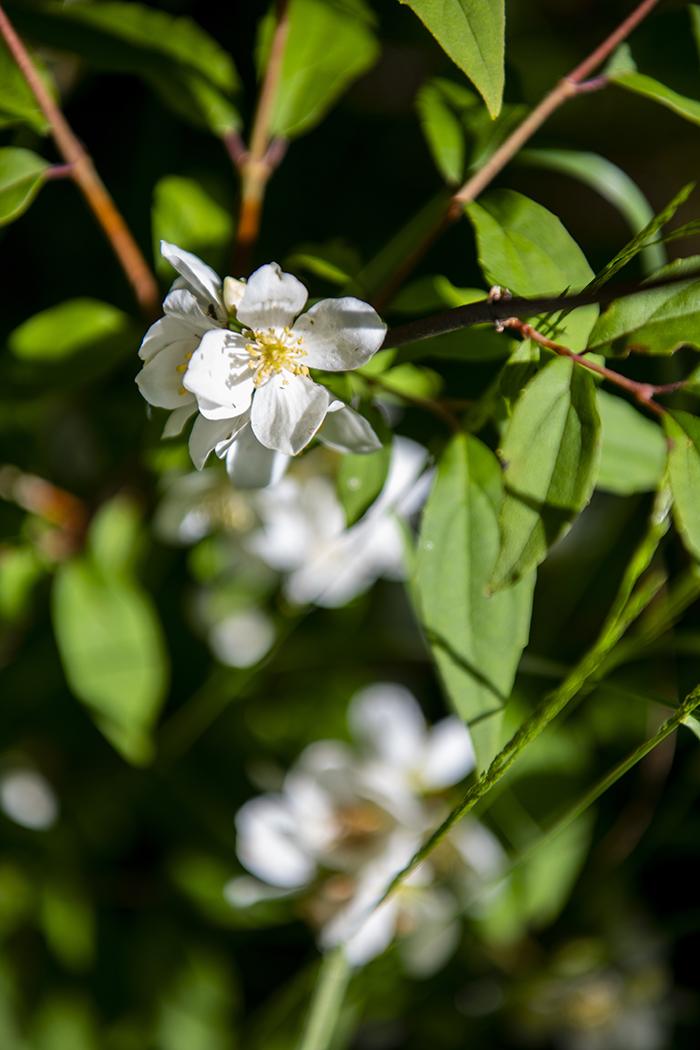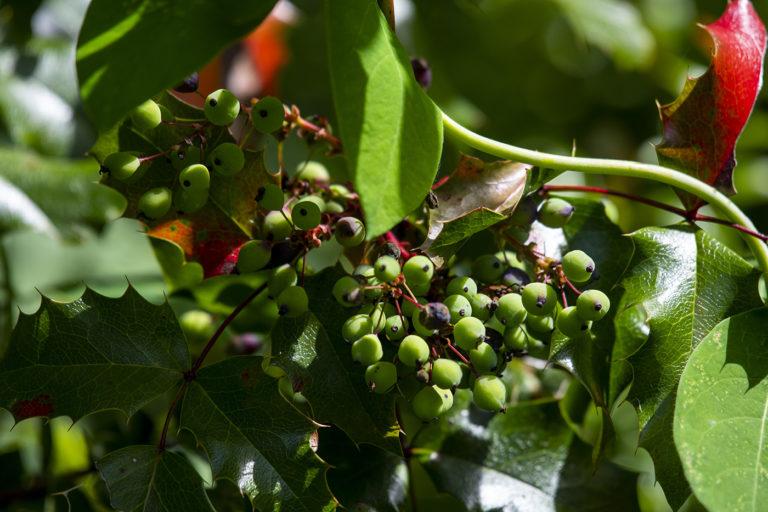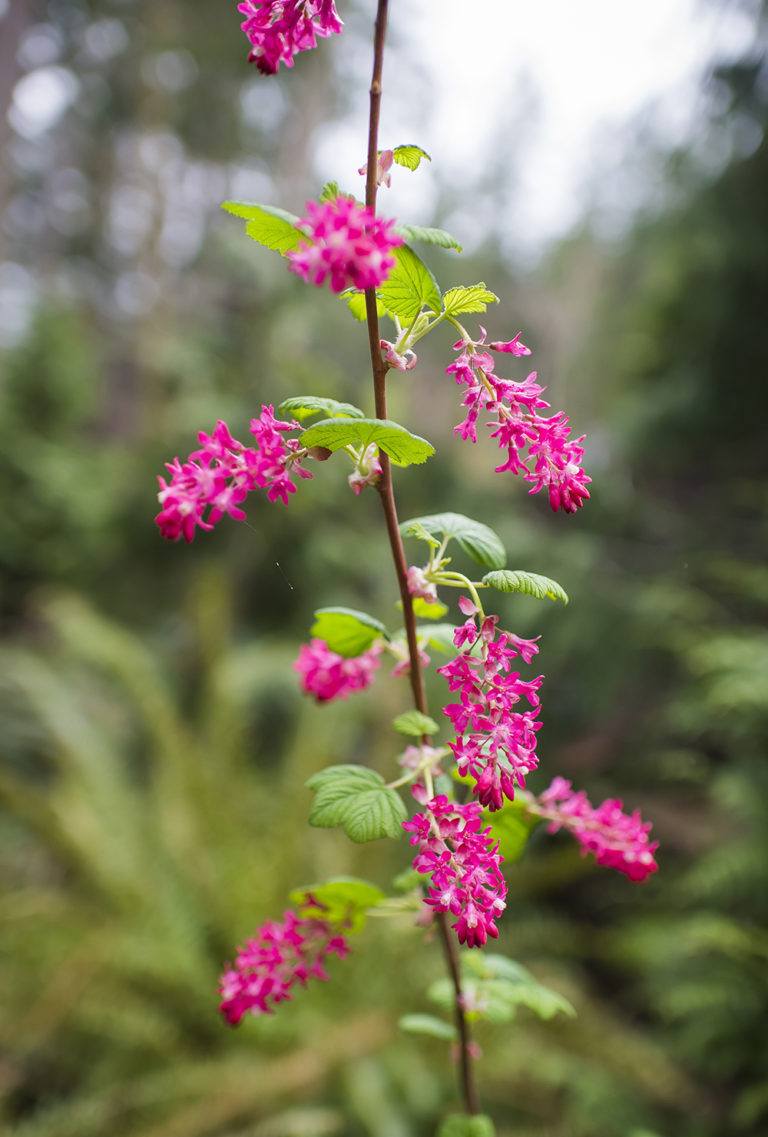Tomatoes. Apples. Almonds. Pumpkin. Coffee. Tea. Chocolate.
All pretty important, right? And they all have one thing in common: they need pollinators.
Around 1,000 plants that humans use for food, drink, fiber, spices or medicine need to be pollinated by a very special group of animals called pollinators. Bees, butterflies, wasps, moths, hummingbirds, bats and even some kinds of beetles, flies and ants are incredibly necessary to produce much of the food humans need to survive. As pollinators forage for nectar, they transfer pollen from male to female flowers to allow the plant to reproduce – and feed humans.
But many pollinators are in trouble. Bees worldwide are suffering colony collapse disorder, caused by loss of their forage plants, climate change and other stressors. Other pollinators are also at risk from loss of habitat, plant biodiversity, pesticides and pollution.
Luckily, it’s not hard to support pollinators right in your own backyard.
July 22-29 is National Pollinator Week – so here at Northwest Trek we’re celebrating all our pollinators and the beautiful plants that support them!
How to help pollinators
- Plant native wildflowers for your area to feed your local pollinators. Find a good list here.
- Include a selection of plants so that something will be blooming in each season.
- Plant something for everyone: butterflies like flat flowers, hummingbirds visit tubular flowers, bees love clustered flowers. And hungry caterpillars need food too!
- Set up a pollinator water dish in a protected location. Make sure it has a shallow end for small creatures and keep the water filled and fresh.
- Help pollinators find shelter by installing mason bee houses or bird or bat boxes. (There are many websites with instructions.)
- Avoid chemical pesticides, which harm pollinators. Learn about organic gardening here.
- Mulch to discourage weeds.
Check out our gallery for inspiration, then come visit Northwest Trek for a DIY pollinator plant tour! (Tip: Find the mason bee hotel near the picnic pavilion, then look for bird and bat boxes, plus pollinator plants.)
Learn more on the Pollinator Garden page of our sister zoo, Point Defiance Zoo & Aquarium.
